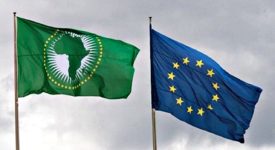David Cameron, who left Downing Street 10 last Wednesday (13 July), encouraged his successor, Theresa May, to “be as close to the European Union as we can be”. He said that “My advice to my successor, who is a brilliant negotiator, is that we should try to be as close to the European Union as we can be, for the benefits of trade, of co-operation and of security”.
Theresa May, who has been a long-serving home secretary, was yesterday formally appointed by the Queen to become Great Britain’s only second female Prime Minister after Margaret Thatcher. Ms. May’s only public statements about the Remain-Leave referendum have so far been “Brexit means Brexit”, although she had previously supported the Remain campaign. Before she won the leadership, she had mentioned that she would not trigger Article 50 by the end of this year even though EU leaders have recently said they expect her to move quickly.
On top of the pressure from Brussels, Ms. May will have to deal with internal pressures as well since Scotland expects that its place in the EU will be protected. Scottish First Minister Nicola Sturgeon has already warned the new Prime Minister that for Scotland, which voted pro-EU in every region, „Remain means Remain“, stressing that while “Theresa May said in her view Brexit means Brexit. I respect that she has a mandate for that as England and Wales voted for it.” But Speaking to reporters in London, Ms Sturgeon also added that “Brexit doesn’t mean Brexit for Scotland because Scotland didn’t vote for Brexit”. She emphasized that she had a mandate “to respect the wishes of the people of Scotland to find a way of keeping Scotland within the EU or protecting our relationship with EU”.







